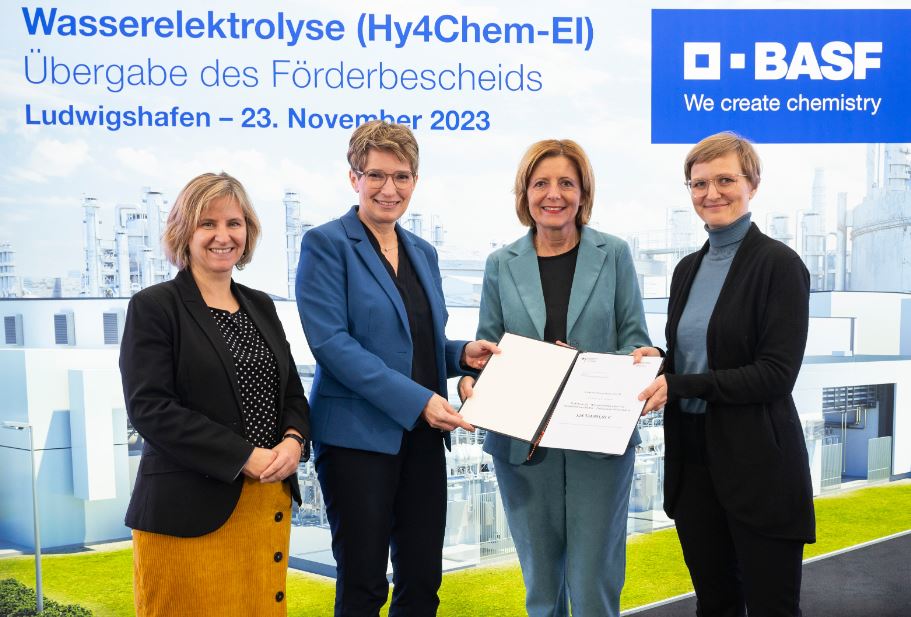BASF, in collaboration with Siemens Energy, has received funding approval from the German Federal Ministry for Economic Affairs and Climate Action and the State of Rhineland-Palatinate. The funds will propel the construction of a proton exchange membrane electrolyzer, marking a substantial leap in the Hy4Chem-EI project at the Ludwigshafen site.
The proton exchange membrane (PEM) electrolyzer, boasting an impressive 54 megawatts (MW) output and a capacity of 8,000 metric tons of hydrogen per year, is poised to be one of Germany’s largest. This colossal project aligns with the goal of producing CO2-free hydrogen, contributing to a substantial reduction of up to 72,000 metric tons of greenhouse gas emissions annually at the Ludwigshafen site.
The PEM electrolyzer will be powered by electricity from renewable sources, emphasizing its commitment to green energy. The hydrogen produced will serve as a crucial raw material for BASF’s manufacturing processes, contributing to the creation of products with a significantly reduced carbon footprint. Additionally, the hydrogen will be utilized to fuel mobility initiatives in the Rhine-Neckar Metropolitan Region, fostering the growth of a hydrogen economy in the area.
BASF and Siemens Energy are on track to commence operations of the water electrolysis plant by 2025. The project, supported by substantial funding from the German Federal Ministry for Economic Affairs and Climate Protection and the State of Rhineland-Palatinate, underscores the collaborative efforts of policymakers and businesses in driving the transformation of the industrial sector toward net-zero carbon emissions.
The German government, through the Federal Ministry for Economic Affairs and Climate Protection, is contributing up to €124.3 million to the project, with an additional €37.3 million from the government of Rhineland-Palatinate. This significant financial backing highlights the strategic importance of the Hy4Chem-EI project in advancing hydrogen technologies and decarbonizing the chemical industry.
Hydrogen is positioned as a pivotal element in BASF’s pursuit of net-zero carbon emissions by 2050. The company, recognizing hydrogen’s role in essential chemical value chains, aims to replace conventional, high-emission production methods with innovative technologies. The shift to water electrolysis and other low-emission options, including methane pyrolysis, is central to BASF’s strategy for a sustainable and green future.
